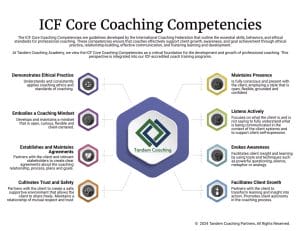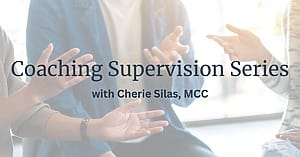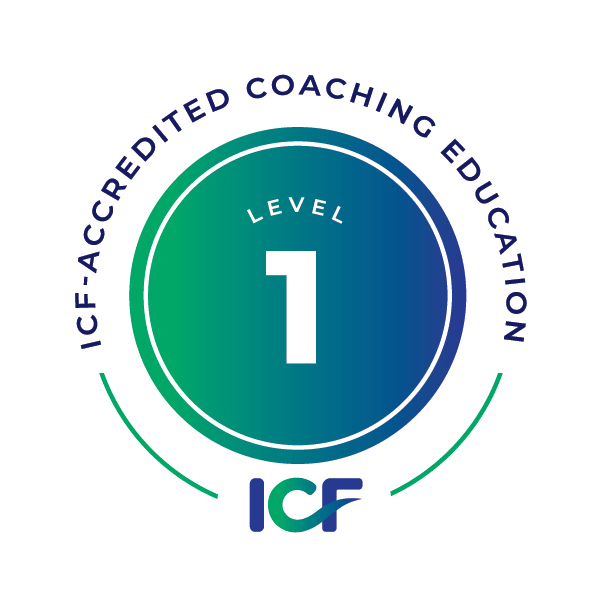Last week, I sat across from Michael, a tech executive who’d just turned 48. His corner office had a stunning view of downtown Dallas, but his eyes were fixed on something far beyond those glass towers. “Cherie,” he said, “I’ve built systems that serve millions of users, but I can’t shake this feeling that I’m meant to build something else – people.”
TL;DR: Becoming a life coach in 2025 requires clarity about your calling, proper ICF-accredited training (60+ hours minimum), 100+ hours of practice, and a business mindset. The investment ranges from $3,500-$14,000, with most coaches recouping costs within their first year. The coaching industry is projected to reach $7.3 billion by 2025, with certified coaches earning an average of $52,800 globally Accurate Coaching Market Size Data for 2024 & 2025 +2 – though experienced coaches often earn significantly more.
Michael’s not alone. I’ve guided hundreds of professionals through this exact transition – that pivotal moment when success stops feeling successful. When the whisper inside becomes too loud to ignore. When you realize your struggles weren’t wounds to hide but wisdom to share.
I’m Cherie Silas, and for over a decade, I’ve been helping people like Michael turn that whisper into a thriving coaching career. My mission remains simple: to leave you better than I find you with each encounter. Today, I want to share what I’ve learned about becoming a life coach – not the Instagram version, but the real journey.
What Would Be Possible If You Stopped Wondering?
I still remember my own moment of reckoning. Fifteen years into my executive career, I’d checked every box society said mattered. VP title? Check. Six-figure salary? Check. Team of talented professionals? Check.
But something was missing.
Late one Sunday evening, preparing for another week of meetings about metrics that increasingly felt meaningless, I asked myself a question that changed everything: “What would be possible if I used my experience to elevate others instead of just organizations?”
The Questions That Matter
Before you invest a single dollar in coach training, I invite you to sit with these questions. As I teach in our programs, transformational questions unlock potential in ways that advice never can:
Do conversations energize or drain you? Sarah, one of our ACC graduates, told me she knew coaching was for her when she realized she could spend hours in deep conversation and feel more alive at the end than when she started. If meaningful dialogue fuels rather than depletes you, pay attention to that signal.
Can you hold space without fixing? This one trips up many executives. We’re trained to solve problems, deliver solutions, have answers. But coaching requires something different – the ability to trust that your client already has their answers within. Can you resist the urge to jump in with advice? Maintaining presence is a core coaching skill.
What’s happening for you when others share their struggles? Do you immediately think of solutions, or do you find yourself curious about what’s beneath their words? Coaches lean into curiosity rather than conclusions. This relates to what we call listening beyond words.
Do you see people as whole, creative, and resourceful? This isn’t just coaching philosophy – it’s fundamental to how you’ll show up with clients. If you see people as broken and needing your expertise to fix them, consulting might be a better fit than coaching. Understanding this distinction is crucial, as we explore in our article on coaching vs therapy.
A Different Kind of Success Story
Let me share something that might surprise you. The most successful coaches I’ve trained weren’t necessarily the ones with the most impressive resumes. They were the ones who’d done their own inner work. Who’d transformed their biggest challenges into their greatest gifts.
Take Maria, who came to us after 20 years in healthcare administration. She’d survived burnout, navigated a difficult divorce, and rebuilt her life from scratch. “I thought my struggles disqualified me,” she told me. “Then I realized they were exactly what qualified me to help others navigate their own transitions.”
Today, Maria specializes in helping healthcare professionals prevent burnout – and she’s booked solid at $300 per session. Her journey exemplifies what we teach about cultivating coaching confidence.
The Real Work of Coaching (It’s Not What Most People Think)
I’m curious – when you hear “life coach,” what comes to mind?
If you’re picturing someone with a clipboard telling people what to do, let me paint a different picture. Yesterday, I worked with a CEO struggling with a major decision about her company’s direction. I didn’t tell her what to do. I didn’t share what I would do in her situation.
Instead, I asked one question: “What do you already know to be true that you’re not yet willing to admit?”
The silence stretched for maybe 30 seconds. Then tears. Then clarity. Then action.
That’s coaching. That’s evoking awareness – one of the most powerful tools we have.
What Coaching Actually Is
In my experience working with leaders, coaching is about creating a space where transformation becomes inevitable. It’s about:
Partnership, not expertise. You’re not the guru on the mountain dispensing wisdom. You’re a skilled partner helping someone climb their own mountain. The view they need is one only they can see. This approach is what we call person-centered coaching.
Powerful questions, not clever answers. A single well-crafted question can shift someone’s entire perspective. “What story are you telling yourself about this situation?” “What becomes possible if that’s not true?” “What do you want?” Despite what some believe, there are no powerful questions – there’s only powerful listening and presence.
Holding space for the whole person. Not just their goals, but their fears. Not just their dreams, but their doubts. In that complete acceptance, people find the courage to change. Building trust in coaching relationships is essential for this level of vulnerability.
Accountability with compassion. Yes, we hold clients to their commitments. But we do it from a place of belief in their capability, not judgment of their struggles. Learn more about actions and accountability in coaching.
What Coaching Isn’t
Let’s clear up some misconceptions that I see even experienced professionals carry. Understanding the distinction between coaching and therapy is crucial:
It’s not therapy. While both are valuable, therapy often focuses on healing past wounds and treating mental health conditions. Coaching partners with healthy individuals to create their desired future. We don’t diagnose or treat – we empower and elevate.
It’s not mentoring or consulting. If someone wants to be told what to do based on your experience, they need a consultant. If they want to learn from your journey, they need a mentor. Coaches believe the client already has their answers – we just help them access that wisdom. This is why we are not hired to give solutions.
It’s not cheerleading. We’re not here to pump people up with temporary motivation. We’re partners in sustainable transformation, which sometimes means asking hard questions and reflecting difficult truths.
The Coaching Landscape in 2025
The coaching industry has grown to an estimated 109,200 certified practitioners worldwide, generating $4.564 billion in annual revenue – a 60% increase since 2019 ICFCoachRanks. But here’s what those numbers don’t tell you: the real growth is in the quality of coaching being delivered.
85% of coaching clients say it’s important that their coach holds a credential Important Coaching Industry Statistics and Trends to Watch in 2024. This shift toward professionalization is why ICF accreditation has become non-negotiable for serious coaches. As we explore in our article on ICF certification requirements, the industry is rapidly evolving.
The most successful coaches today specialize. While you’ll start as a generalist, notice what lights you up:
- Executive and leadership coaching (my specialty at Tandem)
- Life transitions and reinvention
- Career development and job search
- Relationship and communication
- Health and wellness
- Financial mindset and money coaching
- Team coaching (an emerging specialty)
Your Journey: From Calling to Career
Phase 1: Clarity and Commitment (Months 1-2)
The journey begins long before you enroll in any program. This is your time for honest self-reflection.
Clarifying your why. Not the surface why – “I want to help people” – but the deep why. What life experiences have prepared you for this? What transformation have you experienced that you want to facilitate for others? For me, it was discovering that my ceiling could become someone else’s floor. That my struggles in leadership weren’t failures but laboratories for learning.
Testing the waters. Before committing, try coaching conversations with friends or colleagues. Notice what happens in your body when someone has a breakthrough. Pay attention to how you feel after deep conversations. Energy is information. You might discover you’re already using essential coaching skills without realizing it.
Financial reality check. New coaches typically charge $75-150 per session, while experienced coaches charge $150-500+ Life Coach Salary in the United States in 2024 +2. Create a realistic financial plan. Many of our students keep their day jobs while building their practice. There’s no shame in transition – there’s wisdom in it. Understanding how to build a successful coaching practice early can save years of struggle.
Due diligence. Talk to working coaches. Hire a coach yourself (if you haven’t already). Attend coaching demonstrations. Read books by master coaches – check out our recommended reading list for coaches. Immerse yourself in the world you’re considering entering.
Phase 2: Training and Transformation (Months 3-9)
This is where intention becomes education. Quality training isn’t just about learning techniques – it’s about becoming the coach your future clients need.
Why ICF accreditation matters. The International Coaching Federation isn’t just another certification body. It’s the global standard that separates professional coaches from well-meaning amateurs. ICF-accredited programs ensure you’re learning proven methodologies and ethical standards. Without this credibility, you’re just another person with opinions. Understanding the ICF Code of Ethics is fundamental.
Choosing your training path. Not all programs are created equal. When I was researching programs years ago, I was shocked by the price variations – some charging over $14,000 for what we now offer at $3,500 for ACC certification. Look for:
- Full ICF accreditation (not just “aligned with”)
- Included mentor coaching (some charge extra)
- Flexible scheduling for working professionals
- Exam preparation support (learn how to master the ICF ACC credential exam)
- A community you’ll want to stay connected with
The transformation process. Fair warning: good coach training will challenge you. You’ll practice coaching, receive coaching, and confront your own edges. One student told me, “I came to learn how to coach others. I discovered I first had to learn how to get out of my own way.” This aligns with the Shu-Ha-Ri concept in coaching.
Phase 3: Practice and Mastery (Months 6-12)
Theory without practice is philosophy. You need hours in the chair to develop your coaching presence.
Your first 100 hours. ICF requires 100+ hours of coaching experience. Start with practice clients – friends, colleagues, anyone willing to be coached. Some of my best learning came from my worst sessions. Embrace the awkwardness of beginnership. Establishing and maintaining agreements becomes second nature with practice.
Finding your voice. Every coach brings unique presence. I tend to be direct and challenging, with warmth. Others are gentle and nurturing. Through practice, you’ll discover your natural style and learn when to adapt it. Understanding different coaching techniques helps you build your toolkit.
Developing your niche. While you’ll start broad, patterns emerge. What types of clients energize you? What transformations are you uniquely equipped to facilitate? 34% of all coaching is leadership-focused, while 17% centers on executive development The Top Coaching Statistics 2025 | Kinkajou. Find where your experience meets market demand.
Phase 4: Building Your Business (Months 9-15)
This is where coaching becomes more than a skill – it becomes a sustainable career.
Business foundations. Yes, the unsexy stuff matters. Business registration, insurance, contracts, payment systems. Take it one step at a time. Every successful coach started where you are. Building a successful coaching practice requires both coaching skills and business acumen.
Client acquisition. Start with your network, but think beyond it. Develop a simple marketing strategy aligned with your strengths. Some coaches thrive on social media; others prefer speaking engagements or referral partnerships. There’s no one right way. Consider how trends in executive coaching might inform your approach.
Pricing your services. According to the ICF Global Study, the average fee for a 1-hour coaching session is $244 Life Coach Salary: Average Pay & Income Streams (2025). But you’re not average – you’re you. Start at a rate that feels slightly uncomfortable. That discomfort often signals you’re valuing yourself appropriately. Remember: you’re not charging for time; you’re charging for transformation.
The Investment: More Than Money
Let’s talk numbers, because I believe in transparency. Our detailed ICF certification cost breakdown shows exactly what to expect:
Financial Investment
83% of people who have worked with a coach said it was either “important” or “very important” that their coach had a coaching certification The Coaching Industry Market Size in 2025. Here’s what certification really costs:
- Training program: $3,500 – $14,000+ (we’re on the affordable end)
- ICF application fees: $300 – $500
- Additional expenses: $1,000 – $3,000 (books, practice sessions, business setup)
- Total investment: $5,000 – $18,000
But here’s the context: The average life coach salary in the U.S. is around $62,500 per year, with top coaches earning significantly more 114 Life Coaching Statistics 2025 Report: Earnings, Growth & Trends. Most coaches recoup their investment within the first year.
Time Investment
- 60+ hours of coach-specific training (ACC level)
- 100+ hours of client coaching (practice and paid)
- 10 hours of mentor coaching over at least 3 months
- 20-30 hours studying for the ICF exam
Most students complete certification in 6-9 months while working full-time.
Personal Investment
This might be the most important investment. Becoming a coach requires:
Doing your own work. You can only take clients as deep as you’ve gone yourself. Expect to confront limiting beliefs you didn’t know you had. Consider working with coach supervision to support your development. Reflective practice becomes essential.
Embracing vulnerability. Your first sessions will be messy. Your tenth might be worse. Growth happens at the edge of comfort. Understanding how to get the most from supervision sessions can accelerate your development.
Staying curious. The moment you think you know it all is the moment you stop being an effective coach. Continuous learning is part of the profession.
Common Pitfalls (And How to Avoid Them)
Pitfall 1: The Bargain Certification Trap
Those “become a coach in 30 days” programs are tempting. They’re cheap, fast, and promise easy success. Here’s what they don’t tell you:
- Without ICF accreditation, many organizations won’t hire you
- You’ll likely need additional training later
- You miss the depth required for confident coaching
Solution: Invest in ICF-accredited training from the start. Your future self (and clients) will thank you. Understanding ICF competencies provides the foundation you need.
Pitfall 2: Trying to Coach Everyone
“I help people live their best life” sounds nice but builds no business. Generalists struggle while specialists thrive.
Solution: Start broad, then notice patterns. Which conversations light you up? What problems are you uniquely positioned to solve? Let your niche emerge organically. Consider specializing in areas like team coaching or agile coaching once you’ve mastered individual coaching.
Pitfall 3: Ignoring the Business Side
Many brilliant coaches struggle because they neglect business fundamentals.
Solution: Dedicate time weekly to business development. Learn basic marketing. Practice enrollment conversations. Treat your practice like the business it is. Understanding ethics in coaching includes ethical business practices.
Pitfall 4: The Lone Wolf Syndrome
Coaching can be isolating, especially when starting out.
Solution: Stay connected to your training community. Work with a mentor coach. Join ICF chapters. Consider group coaching supervision or peer supervision for ongoing support. Remember: even coaches need coaches.
What Becomes Possible Now?
As I write this, Michael (from my opening story) is six months into his coaching journey. He’s completed his ACC training, coached his first 50 hours, and just enrolled his first paying client.
“The strangest thing,” he told me last week, “is that I’m using everything I learned in tech – systems thinking, user experience, iterative improvement. But now I’m applying it to human transformation.”
That’s the beauty of this journey. Your past isn’t irrelevant – it’s preparation. Whether you’re exploring systems coaching approaches or developing your own methodology, your unique background becomes your strength.
If You’re Ready to Begin
The path forward is clearer than you might think:
- Schedule a consultation with an ICF-accredited program (yes, including ours)
- Experience coaching yourself if you haven’t already
- Start practicing deep listening in every conversation
- Join a coaching community to learn from others’ journeys
If You’re Still Exploring
That’s perfectly valid. This decision deserves thoughtfulness:
- Take time for self-reflection using the questions I’ve shared
- Attend a coaching demonstration to see the process in action
- Read “Co-Active Coaching” or “The Coaching Habit”
- Notice where you’re already coaching (you probably are)
My Invitation to You
Your life experiences – especially the difficult ones – weren’t random. They were preparation. That executive who feels trapped in success? They need someone who’s navigated that transition. That entrepreneur facing their third pivot? They need someone who understands reinvention. That parent returning to work? They need someone who gets the complexity of multiple identities.
They need you.
Not the polished, perfect version of you. The real you. The one who’s struggled and grown. The one who’s failed and learned. The one who knows that transformation is possible because you’ve lived it.
Research shows that midlife career transitions, while challenging, often lead to increased fulfillment when individuals find work that resonates with their values and passions ResearchGate, Nih. According to the American Institute for Economic Research, 82% of midlife career changers report equal or higher earnings within two years Midlife Career Change: Best Jobs & Career Transition Tips for Professionals.
The world needs what you have to offer. The question isn’t whether you can become a life coach. The question is: are you ready to answer the call?
Your Next Step
I believe in action over endless analysis. Choose one:
Ready to explore training? Schedule a free consultation to discuss your goals and see if Tandem’s approach aligns with your vision.
Want to test your readiness? Reach out to three people this week and offer them a “coaching conversation.” Notice what happens.
Need more information? Read our comprehensive guide to ICF certification costs and comparisons.
Remember: every master coach started exactly where you are now. Curious. Slightly uncertain. Feeling the pull toward something more. Trust that feeling. Your future clients are waiting for the unique gifts only you can offer.
With belief in your journey,
Cherie Silas, MCC
Founder & CEO, Tandem Coaching
P.S. If this resonated with you, share it with someone else who might be feeling the call. Sometimes the nudge we need comes from unexpected places.
Frequently Asked Questions
Is 45 (or 50, or 60) too old to become a life coach?
Absolutely not. In fact, life experience is one of your greatest assets. I’ve trained successful coaches who started in their 60s. Your lived wisdom – including career transitions, relationship challenges, and life lessons – provides depth that younger coaches simply can’t offer. Midlife career changes are increasingly seen as natural, with many finding that changing careers allows them to pursue paths that better suit their current values LondonRelationalpsych. Your age isn’t a limitation; it’s a qualification.
Do I need to quit my job to become a coach?
Not at all. Most of our students keep their day jobs while building their coaching practice. This provides financial stability and removes pressure while you’re learning. I recommend starting with evening and weekend clients, gradually building your practice until it can sustain you. Several of our graduates took 18-24 months to transition fully – and that’s perfectly fine. The goal is sustainable success, not rushed failure.
How do I know if I should get ACC or PCC certification?
Start with ACC (Associate Certified Coach) certification – it’s the entry-level ICF credential requiring 60+ hours of training. It’s perfect for new coaches and provides full credibility to start your practice. You can always pursue PCC (Professional Certified Coach) later, which requires 125+ hours of training and demonstrates advanced competency. Think of ACC as your bachelor’s degree and PCC as your master’s. Most coaches practice successfully for years with just their ACC. If you’re ambitious, you might even aim for MCC certification eventually.
What if I fail the ICF exam?
First, breathe. The exam is challenging but passable with proper preparation. At Tandem, we include a comprehensive exam prep course to ensure you’re ready. If you don’t pass initially, you can retake it (yes, there’s an additional fee). The key is understanding ICF core competencies deeply, not just memorizing answers. Most of our students pass on their first attempt because we prepare them thoroughly. Remember: the exam isn’t meant to trick you – it’s meant to ensure you can coach safely and effectively. We even offer team coaching exam preparation for those pursuing advanced certifications.
Can I specialize right away, or should I start as a generalist?
I recommend starting broad and letting your specialty emerge naturally. Your first 50-100 clients will teach you so much about where your strengths lie and what work lights you up. That said, if you have deep expertise in a specific area – like healthcare, tech, or education – you can certainly market to that niche while staying open to discovery. Leadership coaching tops the charts at 34% of all coaching, followed by executive coaching at 17% Unlock the Future: Top Coaching Industry Trends 2024. But the best niche is the one where your passion meets market demand.
How long until I can replace my current income?
This varies greatly, but here’s what I’ve observed: coaches who treat their practice like a business (not a hobby) typically match their previous income within 18-24 months. The average salary for life coaches is just over $70,240 per year, with senior coaches often exceeding six figures How Much Do Life Coaches Make in 2024?. Success factors include consistent marketing, quality training, finding your niche, and most importantly – doing excellent work that generates referrals. Remember: every client you transform becomes a walking testimonial for your practice. Understanding emotional intelligence in coaching can accelerate your success.

Unlock Your Coaching Potential with Tandem!
Dive into the essence of effective coaching with our exclusive brochure, meticulously crafted to help you master the ICF Core Coaching Competencies.
"*" indicates required fields
About the Author
Cherie Silas, MCC
She has over 20 years of experience as a corporate leader and uses that background to partner with business executives and their leadership teams to identify and solve their most challenging people, process, and business problems in measurable ways.















